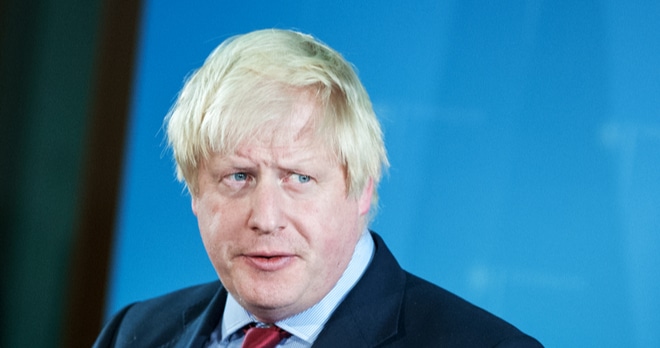Parliament goes blue. What’s in store for business?

Brexit
As anyone who has spent at least one day in the UK over the last few weeks will know, Conservatives are going to "get Brexit done". A recent article in Financial Times argues that this is "a slogan, not a policy". While it is fairly certain that with Boris Johnson as PM UK will be leaving the EU on 31 January 2020, the finer detail of what happens after that is yet to come. The Conservatives' manifesto states that the UK will be outside the EU single market, and any form of customs union. But until we know the terms of a new relationship with the EU, it will be hard to argue that Brexit has really been "done".
In its response to the Conservative manifesto CBI said that "sustainable economic growth will be risked if there is a needless rush for a bare bones Brexit deal that would slow down our domestic progress for a generation."
Immigration
An Australian-style points-based immigration system has been the Conservatives' preferred option for a few months now. While it is not yet certain how it would work in practice, during the campaign Boris Johnson talked about a scheme that could see the government issue three different types of visas.
To quote Mr Johnson's interview for The Times: "We’ll have exceptional talent — that will be scholars, start-up geniuses, people who are going to boost the UK economy, whose case will be pretty obvious, prima ballerinas, first violins, you name it, they will be coming in." Immigrants on these visas would not need a job before entering the UK and would be fast-tracked in.
The second category would be skilled workers who have to have a job offer before entering the UK. According to Mr Johnson, the classic example of this is NHS staff. This second category would have a pathway to residency in the UK.
The third, and final, category would be people who are coming in on a sector-specific basis to do certain low-skilled jobs for a limited amount of time, e.g. seasonal agricultural workers. They would not be offered a pathway to residency.
In order to decide how many visas of each category should be issued, the Migration Advisory Committee could get powers over immigration similar to those of the Bank of England over interest rates and would be able to "advise government about the specific sectors that need support, where the numbers need to go".
Having abandoned Theresa May’s promise to reduce net immigration to under 100,000, the Conservatives say that under the new systems "numbers will come down".
If you employ EU nationals at the moment, the status quo remains unchanged: your EU, EEA or Swiss employees and their families need to apply to the EU Settlement Scheme to continue living in the UK after 30 June 2021. If the UK leaves the EU without a deal, the deadline for applying will be 31 December 2020.
Pro-enterprise vision
The Conservatives' modest spending plans, amounting to just £2.9bn a year (as compared to £82.9bn for Labour and £62.9bn for the Lib Dems) were viewed as "a pro-enterprise vision" by business representatives.
What promises have Conservatives made?
Among Conservatives' pro-business promises are the introduction of the £3bn Right to Retrain Fund to help address skills shortages and finessing the working of Apprenticeship Levy. Another important promise is keeping corporation tax steady at 19 percent and cutting four other business taxes: the business rate, R&D tax, construction tax and employers’ national insurance contributions. The party also pledges to halve business rates for smaller pubs, shops and cinemas.
The Tories also intend to offer full fiber broadband to every home and business across the UK by 2025. The party would implement the digital services tax developed by former Chancellor Philip Hammond.
The Conservatives would spend 2.4 percent of the U.K.’s GDP on research by 2027. Some of the funds would go to creating "a new agency for high-risk, high-payoff research, at arm’s length from government."
Adam Marshall, director general of the British Chambers of Commerce (BCC), said that while the manifesto “struck some of the right notes” businesses will be looking to see “more substantial measures to boost growth, enterprise and investment”.
And how did UK businesses react?
Overall, the businesses’ reaction varies from sector to sector: for instance, the pharmaceutical industry welcomes pledges to increase public research spending to meet a target of 2.4% of GDP alongside plans to set up an “innovative medicines fund”, and make the UK the leading global hub for life sciences would boost the industry. In health and social care, the narrative is less optimistic, with Dame Donna Kinnair, chief executive of the Royal College of Nursing, saying that it was unclear where 50,000 new recruits into the nursing profession would come from.
Over the coming days and weeks, we'll be looking at what the Tory manifesto promises would mean to each of the key sectors our legal experts work with. In the meantime, please check our Brexit Hub for regular updates.